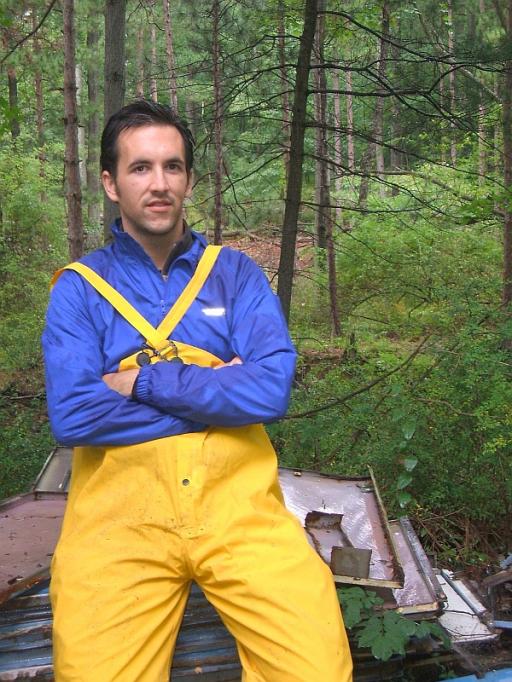
Recently Rated:
Stats
Blogs: 1
Location: Baltimore, MD
Work interests:
Affiliation/website:
Preferred contact method: Reply to post in blog/forum/group
Preferred contact language(s):
Contact:
Favourite publications:
Work interests:
Affiliation/website:
Preferred contact method: Reply to post in blog/forum/group
Preferred contact language(s):
Contact:
Favourite publications:
Founding Member
Location: Baltimore, Maryland
Work: Ethology, evolutionary biology, biological anthropology, ecology, environmental economics.
Biographical: B. A. Anthropology - University of Maryland, College Park - 2008 Science Blogger - http://www.SurvivalMachine.org/ Currently seeking enrollment as a graduate student in Integrative Biology.
Work: Ethology, evolutionary biology, biological anthropology, ecology, environmental economics.
Biographical: B. A. Anthropology - University of Maryland, College Park - 2008 Science Blogger - http://www.SurvivalMachine.org/ Currently seeking enrollment as a graduate student in Integrative Biology.
Untitled
Note: This blog entry is a cross-post from my regular science blog site, Survival Machine.First, let me just say that Cornell University has a great open-access digital repository for e-prints called arXiv.org. E-prints are digital versions of research documents (research books, journal articles, theses, conference papers, et cetera) that are made available on the internet, typically by academic institutions or organizations. Open-access repositories such as arXiv.org, PLoS, and others are so important because they make cutting-edge science available for free public review. This is beneficial to the e-prints' authors because they can receive more feedback on and citations of their research. More importantly, they make science more equitable and practicable for students and freelance or unfunded researchers.Now, on to the fun part. On January 19, an e-print was published to arXiv.org detailing the results of an analysis of the accretion and decay of black holes that could possibly be produced by the Large Hadron Collider (LHC). Casadio et al argue in their article against the possibility of catastrophic black hole growthyou can gather this simply by reading their abstract. But they also claim that tiny black holes might take >1 second to decay, far longer than most subatomic particles generated in supercolliders. Now, never mind that this only applies to the Randall-Sundrum 5-dimensional theoretical model of the universe, which is only one of numerous theoretical frameworks whose validity the LHC is designed to investigate. Let alone that the paper was an argument against catastrophic black hole formation. What the gelatinous mass of popular media hears is: longer decay time, thus a greater possibility that black hole accretion will outpace decay resulting in catastrophe. Or to FOX News, "Scientists Not So Sure 'Doomsday Machine' Won't Destroy World".Now, perhaps you're thinking that FOX News' headline is just sensationalism to attract readers, and the content of the article will be a bit more sophisticated. But why the hell would you think that?FoxNews.com can think of a few other things that didn't seem possible once the theory of continental drift, the fact that rocks fall from the sky, the notion that the Earth revolves around the sun, the idea that scientists could be horribly wrong.I'm not pulling your leg. Check out the article. It's not just that they making a mountain out of a molehillan astronomical understatement!I think FOX News paints itself as the journalistic equivalent of the torch-wielding mob outside Frankenstein's castle. It's a view that fuels an unwarranted distrust of science and indirectly promotes anti-intellectualism. Worse still, when public concern is aroused it pulls scientists (and funds) away from their research to form commissions and try to extinguish the hysteria. These kinds of media misrepresentations of scientific concepts or developments usually irritate me, but they also serve as reminders of what an monumental challenge we face in reshaping science education in the United States. Our culture needs to get to a point where media outlets like FOX News are laughed onto the tabloid shelves where they belong.Fortunately, the new Obama administration has signaled that it is serious about promoting science with the appointment of the new Secretary of Energy, Steven Chu. Before his appointment, Chu was a professor of physics and molecular and cell biology at the University of California, Berkeley. He also shared the Nobel Prize for Physics in 1997 for using laser beams to trap supercooled atoms. In announcing Chu's appointment, Obama stated, "his appointment should send a signal to all that my administration will value science. We will make decisions based on the facts, and we understand that facts demand bold action." Obama understands that investment in research and science education is one of the crucial tools we must use to invigorate our sluggish economy and confront the ecological and health threats on our horizon. I hope he's able to put that understanding into action. arXiv:0901.2948v1, January 19, 2009. On the Possibility of Catastrophic Black Hole Growth in the Warped Brane-World Scenario at the LHC, by Robert Casadio, Sergio Fabi, and Benjamin Harms.
